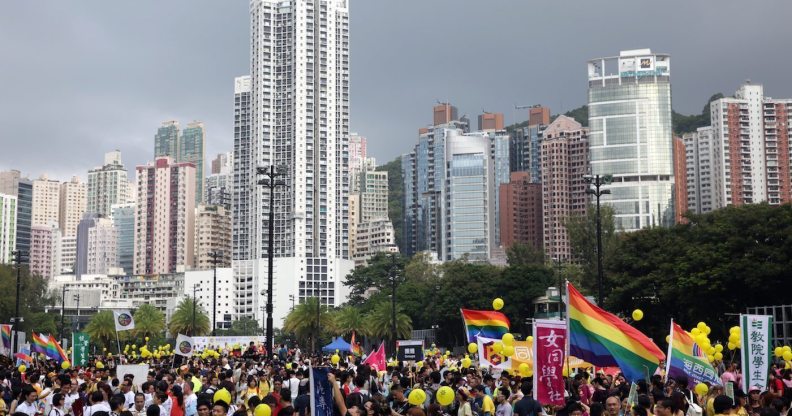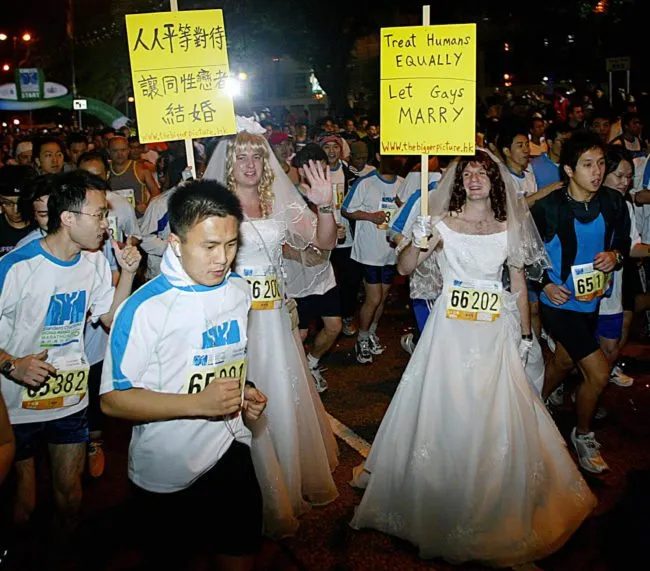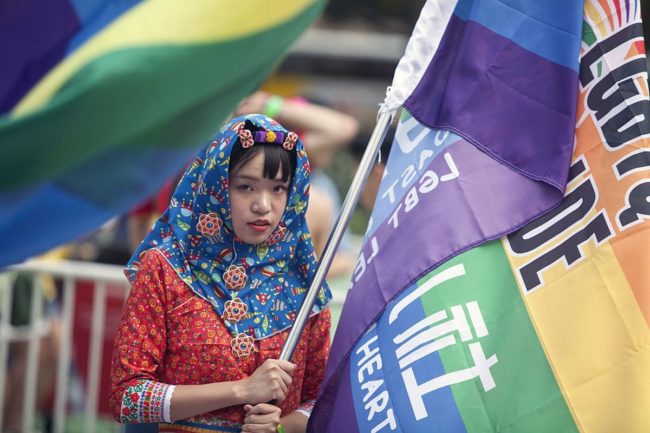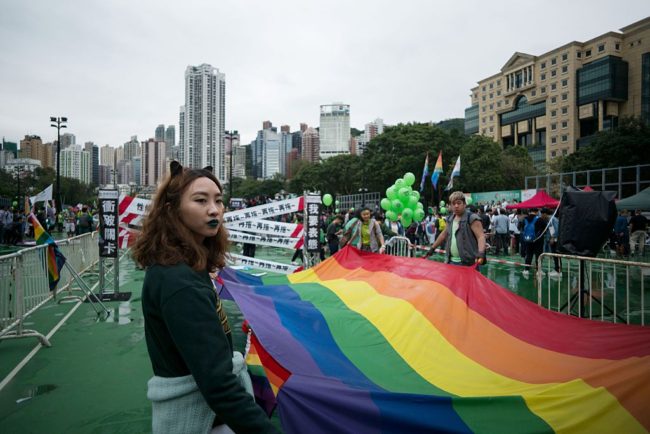British lesbian wins legal recognition of her union in landmark Hong Kong case

Isaac Lawrence/AFP/Getty Images
A British lesbian who was not allowed to work and had to leave her wife every six months has won legal recognition of their union.
Hong Kong’s government and courts had previously refused to recognise the civil partnership which a lesbian couple known only as SS and QT attained in Britain.
SS would have been allowed to bring a husband on a spousal visa, but because their union is not recognised under Hong Kong law, immigration authorities in the former British colony have repeatedly rejected QT’s spousal visa application.

(Getty)
The case has dragged on for more than two years.
But this morning, the Court of Appeal unanimously ruled that QT and SS should receive the same spousal benefits as a heterosexual couple, according to QT’s lawyers.
All three judges agreed that the immigration department has “failed to justify the indirect discrimination on account of sexual orientation that QT suffers,” according to Quartz.
“Times have changed and an increasing number of people are no longer prepared to accept the status quo without critical thought,” the judges wrote.
Same-sex marriage is not legal in Hong Kong.

(Getty)
Despite this, the judges said that “immigration, by definition, requires one to consider not only the local, but also the relevant overseas situation.”
In March of last year, the territory’s High Court rejected the case.
Mr Justice Thomas Au Hing-cheung ruled that the concept of “spouse” in other countries is not necessarily valid in Hong Kong, where it is defined as between a man and woman.

(Getty)
The Court of Appeals’ decision happened on the same day that Hong Kong will officially start accepting blood donations from gay men.
The territory announced earlier this month men will be able to give blood as long as they have not had sex with another man in the past 12 months.

(Getty)
The Red Cross Blood Transfusion Centre made the announcement two weeks ago that it was changing its guidelines, as supplies of blood in the territory fell to “an alarming level”.
Earlier this year, the equality watchdog for Hong Kong said he felt he “could do better” in protecting LGBT and ethnic minorities.

